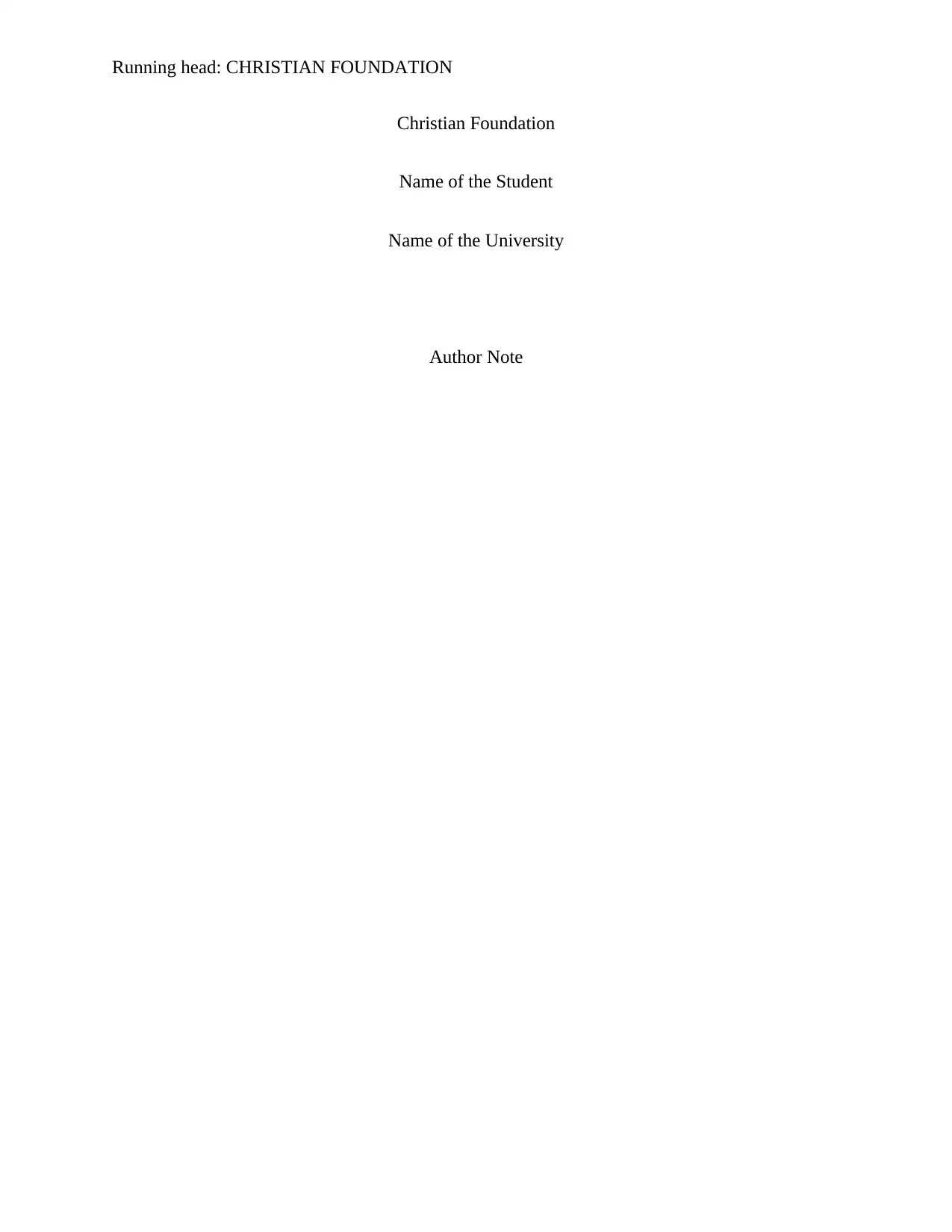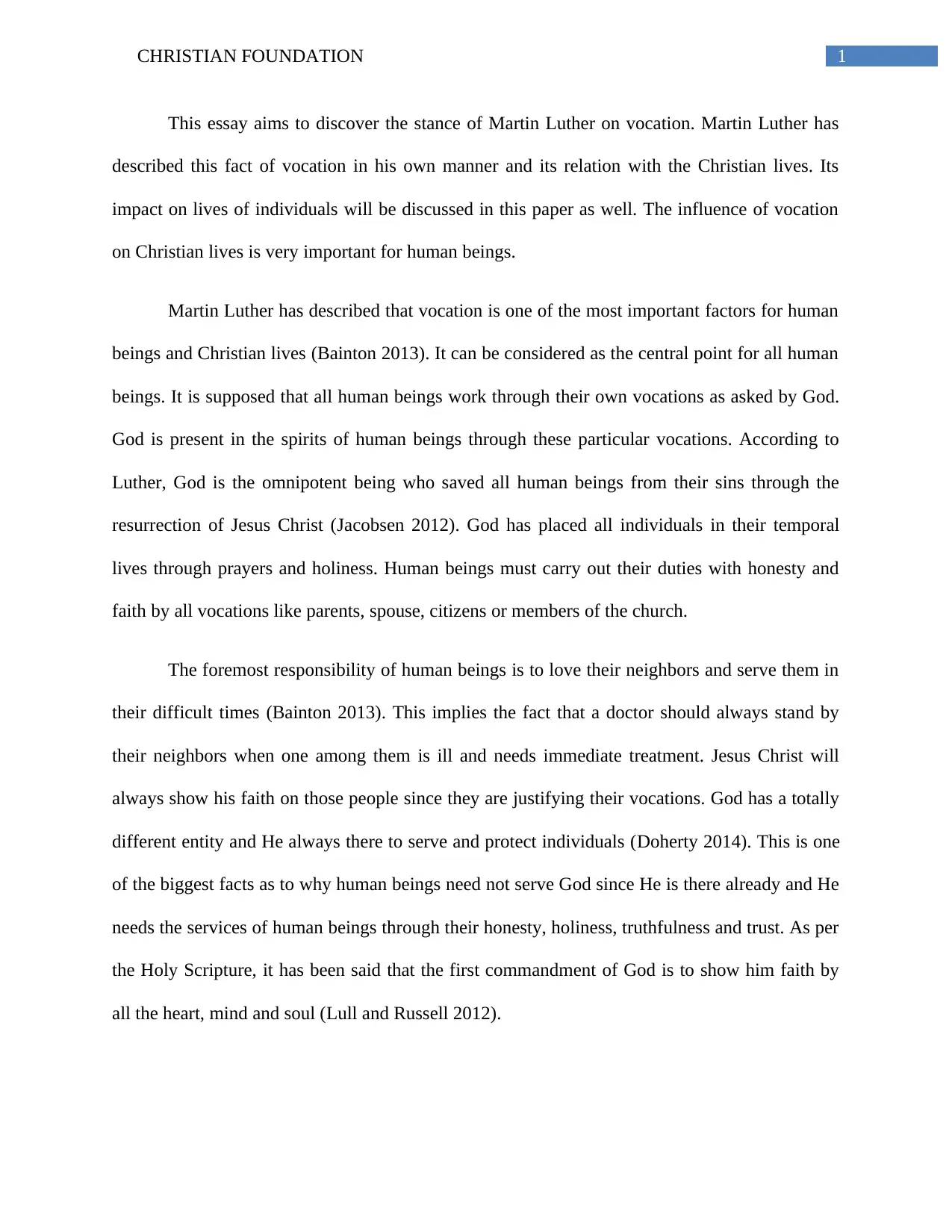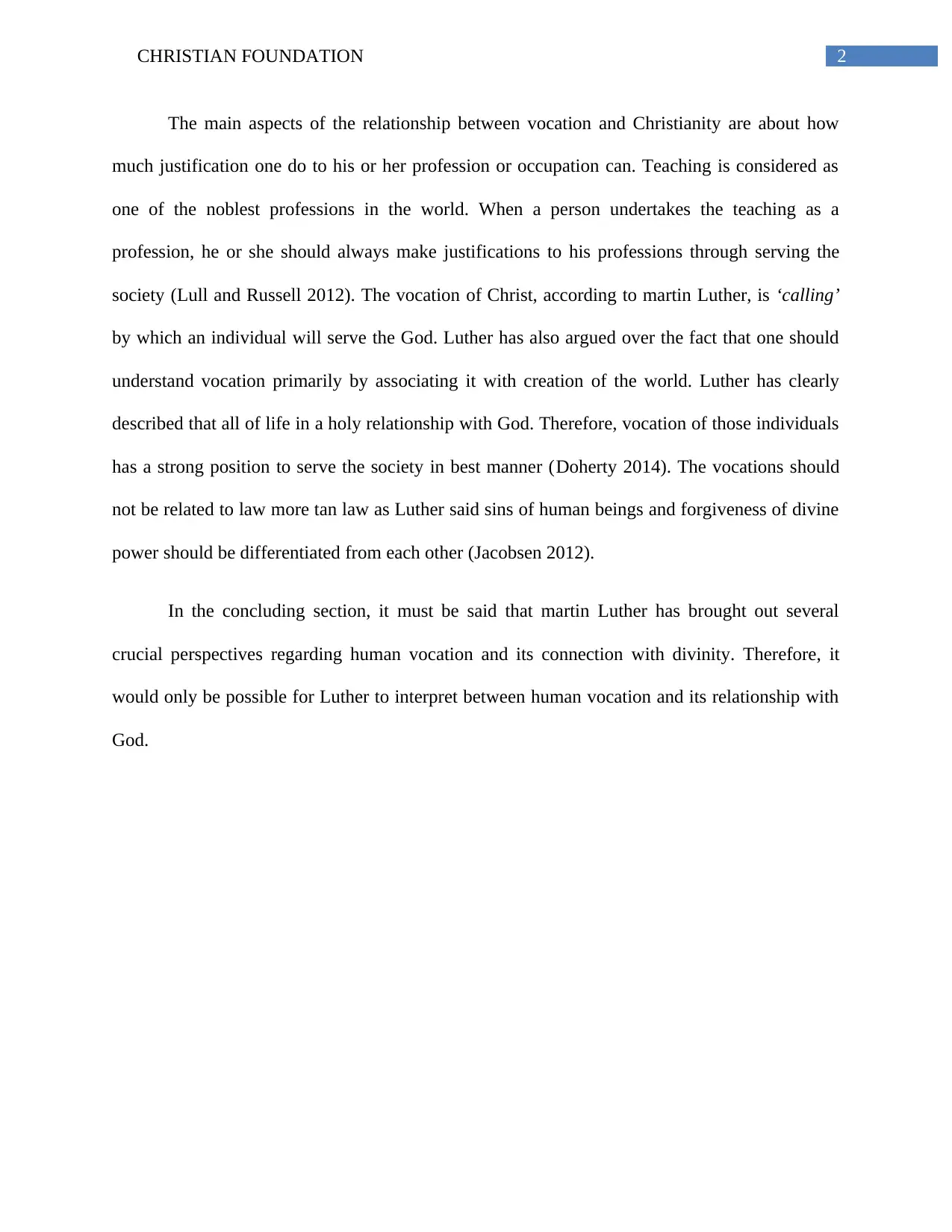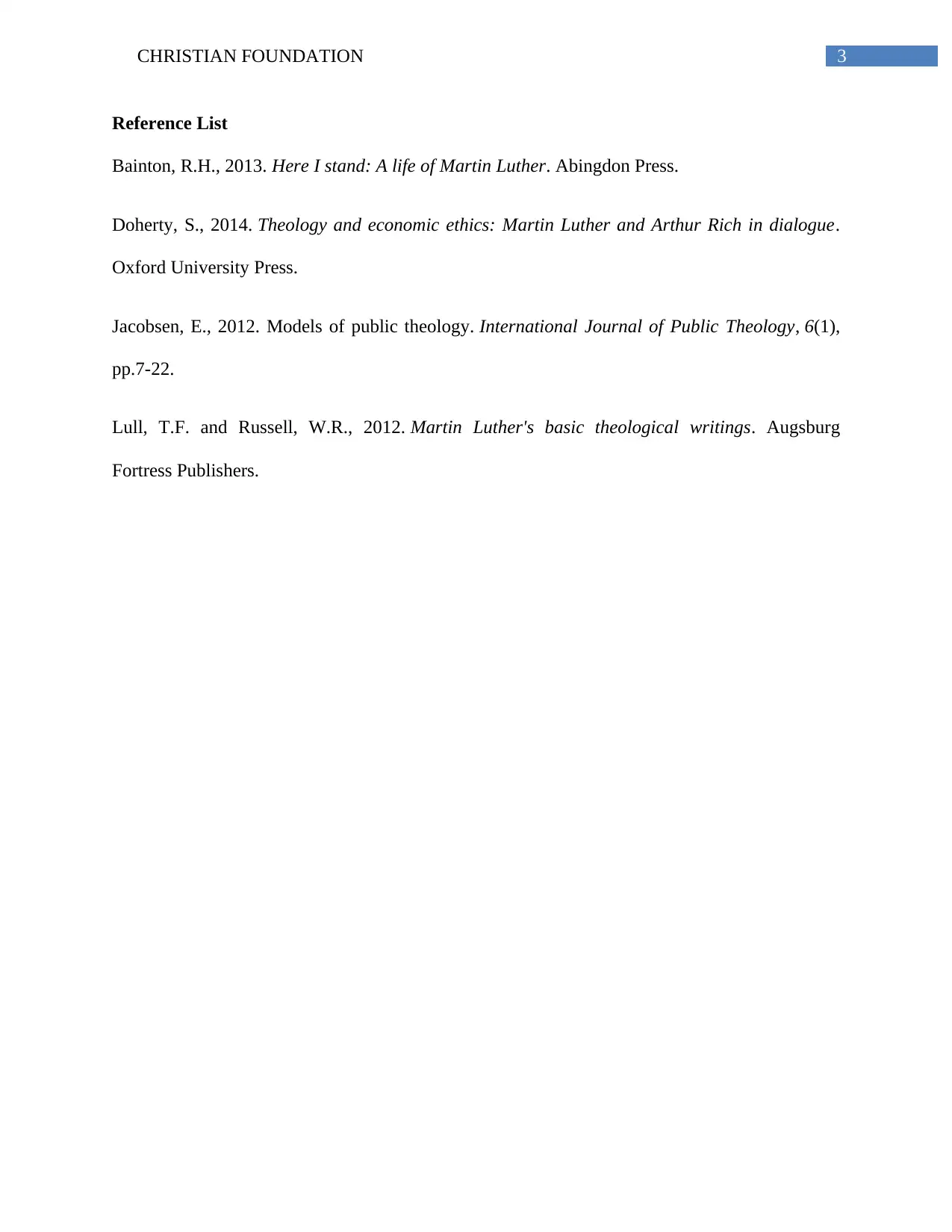The Christian Foundation: Martin Luther on Vocation and its Impact
VerifiedAdded on 2023/04/11
|4
|617
|130
Essay
AI Summary
This essay delves into Martin Luther's perspective on vocation and its central role in Christian life. Luther emphasizes that vocation is a calling from God, enabling individuals to serve Him through their daily work and responsibilities. He posits that God saves humanity through Jesus Christ and places individuals in temporal life to fulfill their duties with honesty and faith, such as parents, spouses, citizens, or church members. The core responsibility is to love and serve neighbors, reflecting Christ's faith. Luther argues that individuals serve God through their vocations, highlighting that one's profession should justify serving society, like teaching. He associates vocation with the creation of the world, emphasizing a holy relationship with God. Ultimately, Luther differentiates between human sins and divine forgiveness, concluding that human vocation is intrinsically linked with divinity. Desklib provides a platform for students to explore similar solved assignments and study resources.
1 out of 4











![[object Object]](/_next/static/media/star-bottom.7253800d.svg)